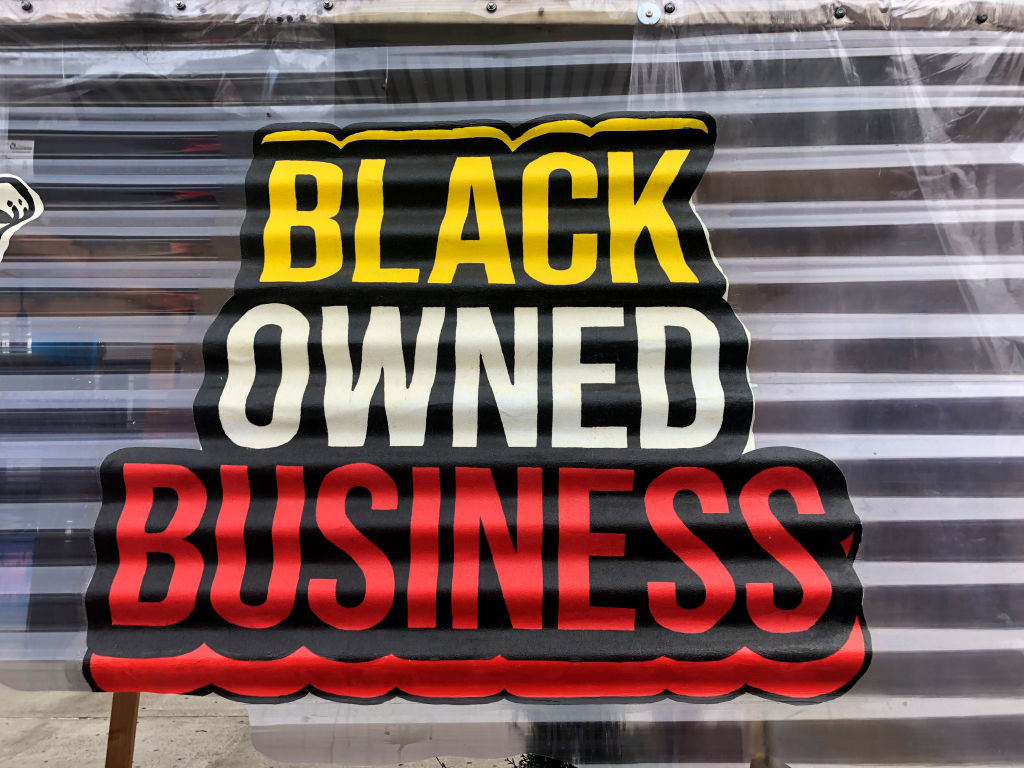May 14, 2024
The report is in keeping with previous scholarship regarding the chronic underfunding of Black-owned businesses.
According to a new report from the Alliance for Entrepreneurial Equity, a partnership between the National Urban League and Third Way, barriers to Black-owned and other minority-owned businesses are keeping those businesses from reaching their true potential. The report also sets out that after an increase in venture capital funding following the 2020 George Floyd uprisings, there has been a decline in funding for Black businesses.
As The Chicago Sun Times reports, the report is in keeping with previous scholarship regarding the chronic underfunding of Black-owned businesses. The barriers to capital for Black businesses also make it more difficult to start or grow those businesses. Black-owned businesses are disproportionately denied funding, 40% of Black businesses are completely denied loans, lines of credit, or cash advances. By comparison, only 18% of white-owned businesses are denied these funding opportunities.
As Marc Morial, the president and CEO of the National Urban League, writes in a column for The Sun-Times, the disparities in funding are part of a larger campaign to preserve the systematic inequality present in America. “The promises of racial justice that America made in the wake of George Floyd’s murder cannot be abandoned. The efforts to distort the nation’s history of racial oppression and discrimination, the silencing of Black voices in classrooms, the dismantling of affirmative action and diversity, equity and inclusion policies are part of a coordinated campaign to preserve systemic inequality.”
t’s #NationalSmallBusinessWeek! Black business, their owners and even the organizations seeking to help level the playing field are under assault.
@FearlessFund co-founder @ariansimone shares about her push to help fund Black female entrepreneurs at https://t.co/oKI5EAwhl6. pic.twitter.com/XR9PwgZrez
The Alliance for Entrepreneurial Equity’s report sets forth that Black businesses tend to be young, have fewer than 20 employees, are generally located in urban areas east of the Mississippi River, are concentrated in specific industries, take in less revenue than other businesses, hold less debt than other businesses, are often labeled as “high-risk” investments, are often shut out of financing, often are not awarded government contracts, and often have to use non-traditional means to secure lines of financing or capital.
According to the report, the practice of moving the goalposts for the exercise of Black economic freedom is resurging, as it was during antebellum-era America. “Starting in 1865, lawmakers sought to bring an end to the pernicious effect of racism that had devastated the country. Congress enacted several constitutional amendments designed to give social, political, and economic power to Black Americans for the first time in United States history. But before the ink had dried on the Civil War Amendments and the law could carry out its remedial purpose, opponents to opportunity began carving away at protections that would have granted economic freedom and fairness to citizens who had historically been deprived.”
The report continues, “Recent legal challenges have targeted programs aimed at alleviating the obstacles faced by marginalized communities, particularly those designed to promote equity in entrepreneurship. As these efforts seek to dismantle affirmative action policies, it is even more important to shed light on the realities faced by entrepreneurs of color. It is imperative that the public, experts, advocates, and policymakers are armed with current data on the state of Black businesses in America.”
The goal of the report is to provide an analysis with strategies can be implemented that can “catalyze informed policymaking, advocacy efforts, and targeted interventions aimed at reversing systemic barriers and fostering a more equitable entrepreneurial ecosystem.”
RELATED CONTENT: This 4-Point Call To Action Could Increase Capital For Black Women Entrepreneurs
Enter your Email Address below to get our fun-filled Newsletter!
© 2024 Black Enterprise. All Rights Reserved.

